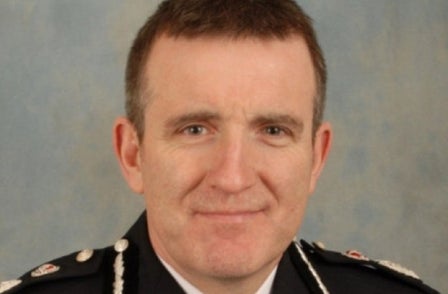
A chief constable has defended police use of the Regulation of Investigatory Powers Act to investigate leaks from forces to the press.
Derbyshire Police's Mick Creedon, who is also ACPO's national coordinator for serious and organised crime, said RIPA could "absolutely" be used to secretly obtain journalists' phone records in a leak probe.
Last week, Press Gazette revealed there were 302 media leak investigations conducted by UK police forces in the five years to the Leveson Inquiry, which started in 2011. Forces have refused to say whether RIPA was, would or could have been used in these cases.
Appearing before the Home Affairs Select Committee today, Creedon said: “I have to say, we [the police] are not interested in journalistic sources. I struggle to understand quite what the debate is.
"We would be interested, for example, in a corrupt officer who was passing information [to] a range of individuals and in looking at that corrupt police officer and their call data.
"It may well be one of those was a journalist. We may even say at the beginning of an inquiry: We believe officer A is giving information to the media.
"But the issue about wanting to know who a journalistic source is, with one or two extreme exceptions, I really can’t understand why we’d want to do that.”
He was asked by Liberal Democrat MP and committee member Dr Julian Huppert: “Would it be acceptable to use these powers as part of a leak inquiry?”
Creedon replied: “The powers to collect call data? Absolutely. Absolutely. And I would imagine that the public would expect us to do that.
"If we’ve got corrupt police officers who are passing information to the media, either for cash or other reasons, they’d expect us to use it. And the issue is not about the journalistic issue, this is about the corrupt individual who is passing information.
"And I accept the corrupt individual could be the well-intentioned whistleblower, the honest whistleblower. So we need to be careful of that.
"But actually we’re not interested in journalistic sources.”
Two police forces have been forced to admit using RIPA to grab journalists' phone records under RIPA.
The first admission came from the Metropolitan Police, which trawled through The Sun newsdesk and political editor's phone records to find the source of its Plebgate story on Andrew Mitchell.
As a result, three police officers lost their jobs. But the Crown Prosecution Service decided not to charge the officers.
The second admission was from Suffolk Police. In 2006, the force was approached by Ipswich Star journalist Mark Bulstrode with a story about the reopening of rape investigation.
Following a request from Suffolk Police, the newspaper chose not to publish the story.But Bulstrode's phone records were still obtained under RIPA.
No criminal action followed, with the police source merely being given a verbal warning.
Earlier, the committee was told by the Interception of Communications Commissioner that his report on police use of RIPA against journalists would be handed to the Prime Minister on 31 January.
Sir Paul Kennedy said all police forces had given him facts and figures following his request.
This is despite the fact all police forces have refused to give Press Gazette similar information under the Freedom of Information Act, with some citing cost exemptions and others saying it went against the interests of national security.
Keith Vaz, chair of the committee, also said forces had failed to provide him with similar information, saying it was not easily retrievable. The committee was told that a profession would not be routinely recorded on a RIPA application.
The decision by police forces not to provide answers to Press Gazette's FoI was questioned by various members of the committee.
Email pged@pressgazette.co.uk to point out mistakes, provide story tips or send in a letter for publication on our "Letters Page" blog
